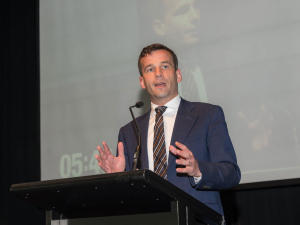OPINION: One of the world’s largest animal health and nutrition companies, DSM, now known as dsm-firmenich, has developed a feed additive Bovaer to lower methane emissions from cows.
Over the years, Bovaer has undergone tests in various countries. Today, it is authorised and available for sale in around 60 countries, including the US, the EU, Australia and the UK.
The company says that by the end of this calendar year 17 out of the top 20 global dairy companies will have the ability to use Bovaer in their home markets if they choose to do so. Unfortunately, NZ and Fonterra are likely not one of those 17.
Bovaer is a classic example of an innovative technology not available to NZ farmers because of red tape.
Announcing a regulatory sector review on the approval process for new agricultural and horticultural products recently, Regulations Minister David Seymour noted that red tape stops farmers and growers from getting access to products that have been approved by other OECD countries. It can take nine years and wrangling government agencies to get the same approval in NZ.
New products need approval from the Environmental Protection Authority and New Zealand Food Safety.
The review will look at the process and the overlap between regulators. In Bovaer’s case, it applied for EPA approval of 3-NOP (the active ingredient in Bovaer) in February 2021. In August 2023, the EPA approved DSM’s application to import and manufacture 3-NOP. MPI is responsible for the next step — assessing the substance before it can be used on farms.
This process has taken too long and our farmers are missing out. Animal and Plant Health NZ chief executive Liz Shackleton rightly points out that innovations don’t belong in a queue, they belong in the hands of our pioneering farmers and growers.


















